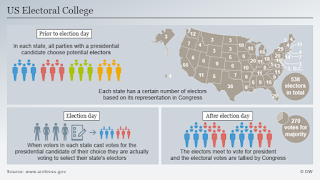Our
last post laid out the definition of critical
race theory (CRT) as developed by the legal scholars
who’ve led and participated in the CRT movement since its inception in the
mid-1980s. We explained the differences among
us about interpreting the definitions offered by those scholars and we set out
CRT’s six most fundamental principles for considering racial issues in legal
contexts. Now we take on perhaps a bigger task – sorting through the misinformation
about CRT perpetrated not only by right
wing
zealots
those scholars and we set out
CRT’s six most fundamental principles for considering racial issues in legal
contexts. Now we take on perhaps a bigger task – sorting through the misinformation
about CRT perpetrated not only by right
wing
zealots eager for an attack on any effort at understanding the true history of
race in America and its impact on our laws and norms, but also by ordinary
people who’ve bought into the disinformation campaign now swirling around CRT.
eager for an attack on any effort at understanding the true history of
race in America and its impact on our laws and norms, but also by ordinary
people who’ve bought into the disinformation campaign now swirling around CRT.
CRT has become shorthand for every program, every effort aimed at uncovering America’s true racial history. Those
 squawking loudest about CRT don’t want to
uncover that history in hopes of maintaining the status quo. We think it
important that Americans know CRT isn’t the enemy and that laws aimed at
keeping the truth about our history hidden do liberty, justice, and equality no
favors.
squawking loudest about CRT don’t want to
uncover that history in hopes of maintaining the status quo. We think it
important that Americans know CRT isn’t the enemy and that laws aimed at
keeping the truth about our history hidden do liberty, justice, and equality no
favors.
The Myths
As we explained last time, right wing commentators like Tucker Carlson
and Mark
Levine have blasted out dire warnings about what CRT could
do to our society. Those warnings rest on falsehoods and myths the right has
pushed about CRT:
commentators like Tucker Carlson
and Mark
Levine have blasted out dire warnings about what CRT could
do to our society. Those warnings rest on falsehoods and myths the right has
pushed about CRT:
·
Schools
are using CRT to teach children to hate America – as we pointed out, hardly any
elementary or secondary schools incorporate CRT into their curriculum. More
importantly, CRT does not advocate hating America. Only law schools (and maybe
a few graduate schools) would dare trying to teach the complicated concepts
that go with real CRT. We’ve watched the eyes of college graduates glaze over
when we’ve delved into detailed CRT analysis. This may represent the most
dangerous and outrageous falsehood ginned up in the current craziness.
to hate America – as we pointed out, hardly any
elementary or secondary schools incorporate CRT into their curriculum. More
importantly, CRT does not advocate hating America. Only law schools (and maybe
a few graduate schools) would dare trying to teach the complicated concepts
that go with real CRT. We’ve watched the eyes of college graduates glaze over
when we’ve delved into detailed CRT analysis. This may represent the most
dangerous and outrageous falsehood ginned up in the current craziness.
·
CRT
“disregards” the idea all people are created equal -- buying into this myth demonstrates the distinction between CRT’s real focus and what the right claims
it does. Our study of original works describing or applying CRT makes clear
this notion has
demonstrates the distinction between CRT’s real focus and what the right claims
it does. Our study of original works describing or applying CRT makes clear
this notion has no basis in fact. We suggest anyone adhering to this idea read Derrick Bell’s
Faces at the Bottom of the Well: The
Permanence of Racism. The book endorses no such idea. Bell helped
popularize the concept of CRT in the American lexicon during his distinguished
academic career.
no basis in fact. We suggest anyone adhering to this idea read Derrick Bell’s
Faces at the Bottom of the Well: The
Permanence of Racism. The book endorses no such idea. Bell helped
popularize the concept of CRT in the American lexicon during his distinguished
academic career.
·
CRT
is inherently divisive – parents objecting to CRT have advanced this noble sounding
idea in opposition to teaching CRT in schools. As we’ve pointed out, nobody is
teaching CRT in schools, except perhaps colleges, law schools, and professional
schools. We suspect this kind of
criticism actually aims at preventing a more honest picture of America’s racial
history. Those who object to such honesty should at least get their facts
straight. If they don’t want more honesty about America’s racial history, they
should say so, not blame a theory they understand marginally or not at all.
As we’ve pointed out, nobody is
teaching CRT in schools, except perhaps colleges, law schools, and professional
schools. We suspect this kind of
criticism actually aims at preventing a more honest picture of America’s racial
history. Those who object to such honesty should at least get their facts
straight. If they don’t want more honesty about America’s racial history, they
should say so, not blame a theory they understand marginally or not at all.
CRT
has come to encompass all efforts at greater honesty about America’s history
with race. Conservatives
have tried equating CRT with the 1619 Project,
an award-winning journalism program developed by the New
York Times that promotes a more realistic look at
how slavery,
race. Conservatives
have tried equating CRT with the 1619 Project,
an award-winning journalism program developed by the New
York Times that promotes a more realistic look at
how slavery, in particular, actually unfolded and affected race relations in
America. The right hopes Americans can’t tell the difference between CRT and
other anti-racism efforts.
in particular, actually unfolded and affected race relations in
America. The right hopes Americans can’t tell the difference between CRT and
other anti-racism efforts.
What the Fight Really Means
We
see it as unfortunate that CRT has become a bogeyman/whipping boy in the culture wars. CRT
has a meaningful place in legal scholarship. It represents the work of some of
America’s best legal minds on a topic that has troubled this nation since its
inception. If our grandchildren attend law school, we know they’ll still learn about
the law and the impact of racial considerations on the law. They may find CRT
useful in grasping that subject.
has become a bogeyman/whipping boy in the culture wars. CRT
has a meaningful place in legal scholarship. It represents the work of some of
America’s best legal minds on a topic that has troubled this nation since its
inception. If our grandchildren attend law school, we know they’ll still learn about
the law and the impact of racial considerations on the law. They may find CRT
useful in grasping that subject.
By
grabbing on to CRT, an obscure, decades- old legal theory that only the most
elite academics fully understand and making it the whipping boy for simmering
racial grievance, the right has found a way to take attention from its failings
of leadership and its lack of ideas for governing. Republicans apparently have given up on being
a party of ideas. They offer nothing at the federal level
old legal theory that only the most
elite academics fully understand and making it the whipping boy for simmering
racial grievance, the right has found a way to take attention from its failings
of leadership and its lack of ideas for governing. Republicans apparently have given up on being
a party of ideas. They offer nothing at the federal level
and only voter suppression
at the state level. Republicans now care about little more than acquiring and
keeping power. If they have ideas about moving America forward on tough issues
that affect people’s lives – health care, finishing the job on the,  pandemic, infrastructure, climate change – they aren’t telling us about
them. Instead, they’ve ginned up this CRT dust storm. Such side shows demonstrate their immaturity
and unfitness to lead.
pandemic, infrastructure, climate change – they aren’t telling us about
them. Instead, they’ve ginned up this CRT dust storm. Such side shows demonstrate their immaturity
and unfitness to lead.
· CRT involves making white students hate
themselves and their ancestors – CRT tools and principles offer methods of
analysis of how law operates in our society and how racism
often influences law. That’s a far cry from indoctrinating someone to hate
themselves.
What they won’t find
helpful is the debate that erupted over CRT in 2021. That debate concerns
politics, not legal analysis. Republicans, looking at a shrinking portion of
the electorate (remember, they’ve lost the popular vote
in every presidential election since 1988 except one) apparently feel they must
do two things : (1) keep their base agitated and (2) troll for more angry white
voters potentially attracted to their grievance politics. Misrepresentations
about the meaning and purpose of CRT offer the best possibilities.
People say America needs two vibrant political parties. At some level, that’s true. It doesn’t need this Republican Party.

















